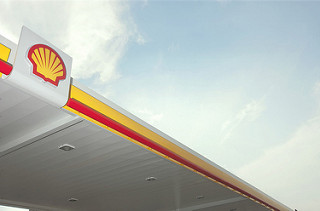
Royal Dutch Shell has announced it will exit oil and gas operations in as many as 10 countries as part of a shift in strategy following its acquisition of BG Group.
In a company update released on Tuesday, Royal Dutch Shell CEO, Ben van Beurden, said Shell’s strategy “should lead to a simpler company, with fundamentally advantaged positions, and fundamentally lower capital intensity”.
“By capping our capital spending in the period to 2020, investing in compelling projects, driving down costs and selling non-core positions, we can reshape Shell into a more focused and more resilient company, with better returns and growing free cash flow per share,” Mr van Beurden.
“All of this is underpinned by an unrelenting focus on safe and environmentally-responsible operational performance, high quality and commercial project execution and prudent financial management of the company.”
Impact of BG acquisition
Turning to its acquisition of BG, van Beurden said: “The BG deal is an opportunity to accelerate the re-shaping of Shell. Integration is gathering pace, and today we expect to deliver more synergies, and at a faster rate.”
Royal Dutch Shell announced in April last year it had reached a sales agreement on a cash and shares offer for UK-based BG Group. The sale, understood to be around $US50 billion, was officially completed in February this year.
“We are announcing an increase in expected deal-related synergies, from the $3.5 billion set out in the prospectus, to $4.5 billion on a pre-tax basis in 2018, an increase of some 30 per cent.
“We expect to achieve and exceed the $3.5 billion synergies prospectus commitment earlier than expected, in 2017, when synergies should be $4 billion. Our other deal-related financial commitments to shareholders in the form of asset sales, debt reduction, and dividends, followed by share buy-backs, are unchanged,” Mr van Beurden said.
Among initiatives to counter the impact of low oil prices the company plans to continue its existing programmes to sustainably reduce operating costs and planned asset sales will see the disposal of up to 10 per cent of Shell’s oil and gas production, including five to 10 country exits.
Shell to exit as many as 10 countries
Christian Stadler, author and professor of Strategy at Warwick Business School, anticipates that as Shell revisits its country portfolio it will exit countries less important to its strategy overall.
“In the oil industry there are many quirks and peculiarities when it comes to running a business. It is very possible to have a well drilled, but the whole process slowed down by permits and other forms of bureaucracy. So a rig can be established, but sat doing nothing and in essence wasting millions. Issues can vary from regulatory, political and even cultural differences.
“A less active profile in some countries, therefore, can only be a good thing. Shell focusing on where it is more established and more confident about therefore makes sense from a cost-cutting perspective.
“The sensible thing would be to cut down areas of smaller production or greater expense. Having said that some activities, such as the Gulf of Mexico are high risk, high reward for Shell. So it needs to focus on where its expertise lies, such as offshore and now LNG following the BG merger,” Professor Stadler said.
“The volatility of the oil market is no doubt another reason for Shell to be looking to change its strategy in this way, with no immediate signs of recovery.”
Job cuts continue
Last month Royal Dutch Shell announced another round of job cuts, taking the total number to around 12,500. In May, Shell Australia, the Australian subsidiary of Royal Dutch Shell, told C&I Week it was also in talks with staff about “business efficiency and staffing levels” with the company expected to cut jobs, mainly from head office.
“Shell maintains an ambitious growth agenda in Australia, and projects such as Prelude FLNG and QGC’s Charlie expansion will provide long term jobs for Australians in regional locations,” a spokesperson told C&I Week in May.
“A majority of employees impacted by the reorganisation will be from corporate head offices, and where possible they will be provided with redeployment opportunities.”
Sign up to C&I’s weekly newsletter here to receive the latest industry news every Thursday. Follow C&I on Facebook, Twitter and Linkedin.

